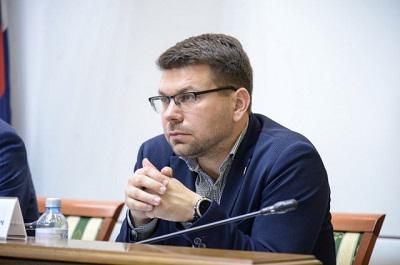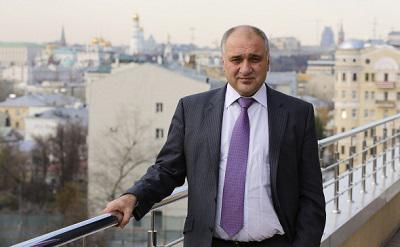Omsk experienced another scandal as a residential building collapsed. The region receives large subsidies yet faces a severe housing emergency, raising questions for Governor Alexander Burkov and his team.
.jpg?v1660555207) Photo: omskinform.ru
Photo: omskinform.ru
A residential building in Omsk partially collapsed on Friday. Residents had previously complained about bricks falling out of the building, but no relocation or action was taken.
This is not the first case – last May, a building wall collapsed. Authorities blamed the incidents on residents installing shower cabins without waterproofing and making unauthorized changes.
The collapse occurred at house number 53 on the 20th Party Congress street. Video: https://www.youtube.com
A reporter from The Moscow Post in the Omsk region investigated the situation.
From sum to prison
After the initial collapse, the court ordered the capital repair fund to fix the building by December 31, 2021, despite residents requesting the building be recognized as an emergency and they be relocated. The prosecutor's check resulted in a presentation to Mayor Sergei Shelest, according to Kommersant.
Shelest visited the scene and assured journalists that the residents would be accommodated in a nearby school for the night and given alternative housing later. Representatives from the contracting organization will conduct an examination to determine the future of the building.
Last year, an examination by the repair fund showed that the house is in disrepair and needs demolition. Today, the homeless residents are awaiting their fate in a temporary accommodation center, following the mayor's direction.
The Investigative Committee initiated a criminal case against the repair fund officials for maliciously neglecting a court order. Checks and searches are underway, as reported by Omsk-inform.
Russia's Emergency Situations Minister Kurenkov has taken personal charge of the situation and will oversee checks on the entire housing stock in the Omsk region.
Investigators will likely uncover significant findings. Questions will undoubtedly arise regarding the whereabouts of the billions allocated by Moscow in 2018 for the region's housing renovation.
Region “Avariek”
Six years ago, a tragic event occurred near Omsk at the Svetly military town, where the barracks of the 242nd Airborne Forces training center collapsed, claiming 24 lives. This seems to have had little impact on local authorities since the housing situation in the region, as well as the need for resettlement in Omsk, remains dire. These issues are mainly resolved through legal action, and as we have seen, not always successfully.
Last year, people living at house number 180 on 20 Years of the Red Army Street asked the prosecutor’s office to check the condition of their house, which is a threat to their lives and health, according to Moskovsky Komsomolets.
Currently, the prosecutor’s office has ordered the Omsk administration through the court to begin the process of relocating the residents. It remains to be seen whether the residents will wait or if a situation similar to that of the house on the 20th Party Congress Street will occur again.
If residents of such houses are relocated, it usually follows the “classic scheme”: they are moved to inadequately equipped houses that do not meet basic needs. For instance, in 2015, the administration demolished an unsafe building and gave the residents the option to move to the new Ryabinovka microdistrict, which was built in an open field without any infrastructure, or stay on the street. This resulted in a large family being left without a home, as reported by Rossiyskaya Gazeta.
Is the mayor not making any decisions?
Shelest became the mayor in early 2022, right after the departure of Oksana Fadina, who was considered to be a protege of the region’s governor Alexander Burkov. The mayor had over six months to use his strong economic expertise (having risen from a foreman and deputy chief engineer to the general director of JSC “OmskVodokanal”) to address the issues that Fadina could not solve. However, in terms of the city's housing stock, nothing has changed.
Shelest seems to have become Burkov's protege, just as Fadina was before. As the head of the water supply enterprise for the region, he frequently interacted with the mayor, which may have played a role in his appointment. Regarding his expertise in housing and communal services, which was praised by United Russia, recent events have raised significant doubts about it.
Fearless team of Burkov
On the other hand, Burkov, who seems to oversee all the aforementioned dramatic events, appears to be more focused on profiting from construction projects. Last year, Aleksey Krukovsky’s development company “Brusnika” reached an agreement with the regional authorities to build a new 300 thousand square meter microdistrict called “Dravert Quarters.”
There are serious concerns about the quality of this company's construction. However, Burkov is not worried because the project spans 13 years, which means that the current regional leader is unlikely to be held accountable for any future issues.
Scandals in the housing sector are a common concern not only in Omsk, but also in the Burkovo region as a whole. Earlier this year, the investigation into Marina Stepanova, the Deputy Minister of Energy and Housing and Communal Services of the regional government, was completed. The former official is accused of demanding kickbacks from construction companies' management and accepting expensive gifts and services in exchange for ensuring smooth payment of contracts for apartment building repairs and overall patronage. This was reported by “Kommersant.”
Stepanova in 2019 followed Burkov from the Sverdlovsk region (where he was at one time a deputy prime minister of the government and even participated in the gubernatorial elections). The conclusion suggests itself.
So far, houses in Omsk are falling apart, and new ones are being built such that moving into them is regarded almost like living on the street, and even the law cannot always force officials to fulfill their duties. Governor Burkov continues his policy of seating “strong business executives”.
But the situation seems to have reached a peak. The attention of the head of the Ministry of Emergency Situations and the investigative committee, searches and seizures of documents indicate that someone will suffer inevitable punishment for everything that happened. Will the governor of Omsk and the mayor of the regional center be held accountable for what happened, or will another “switchman” be found according to the classical scheme?




